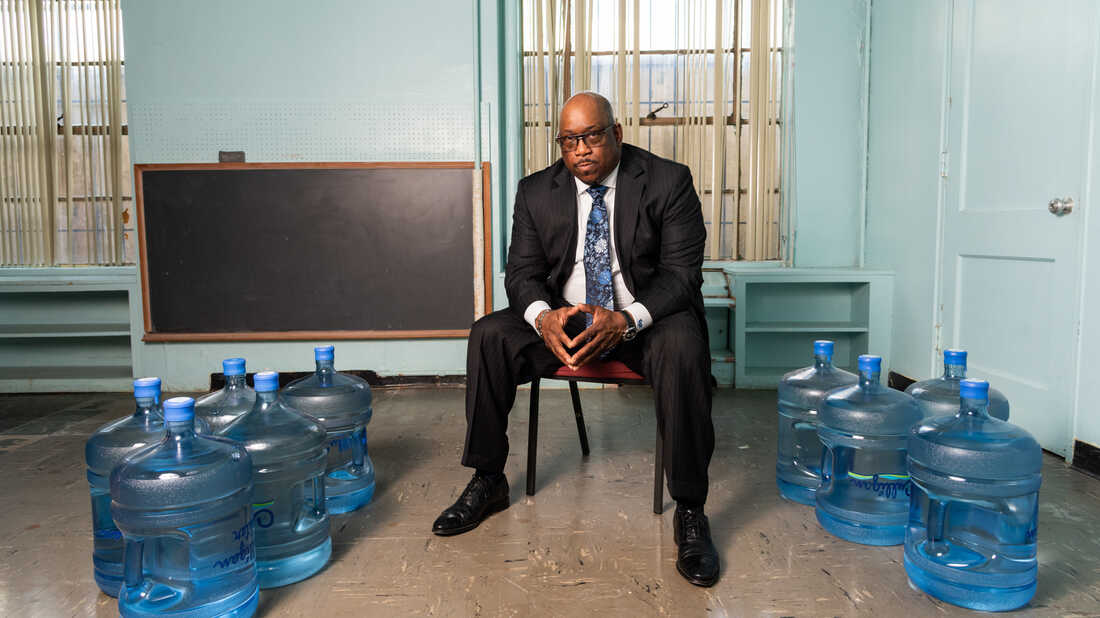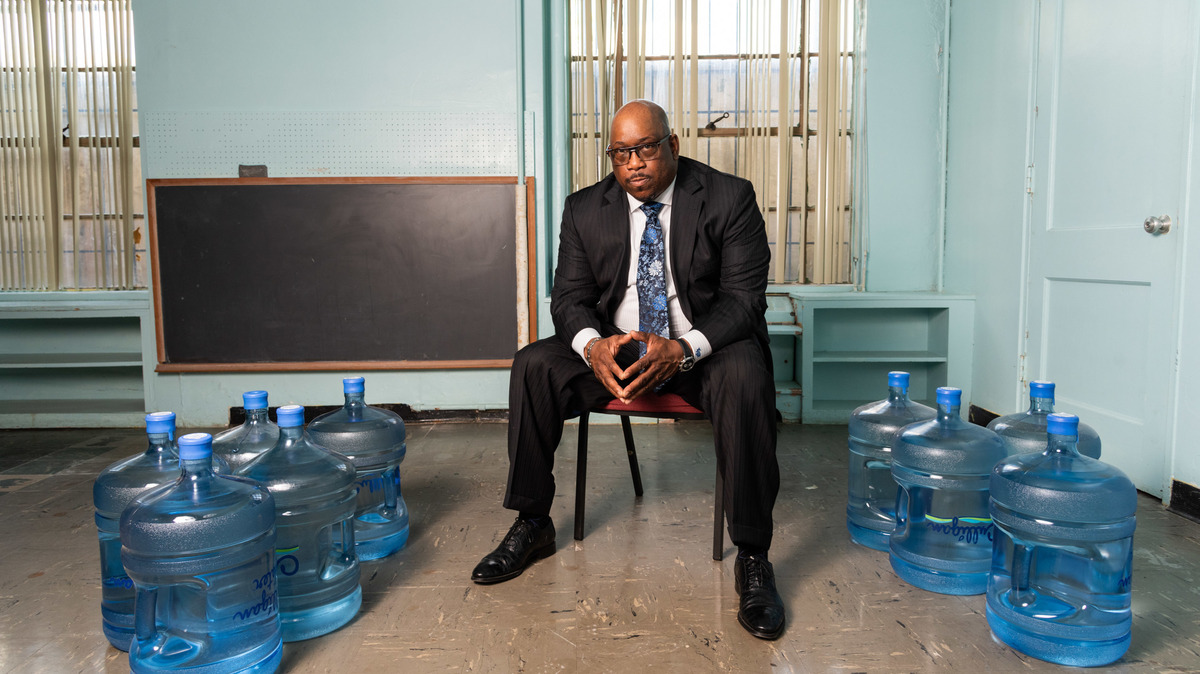
Allen Overton, pastor of Christ Fellowship Missionary Baptist Church, sued to get Flint to replace its lead pipes. If there's a flood of federal funding to remove them everywhere, Overton worries that more-affluent suburbs would rush to get it first, leaving Black and underserved communities behind. Cydni Elledge for NPR hide caption

Allen Overton, pastor of Christ Fellowship Missionary Baptist Church, sued to get Flint to replace its lead pipes. If there's a flood of federal funding to remove them everywhere, Overton worries that more-affluent suburbs would rush to get it first, leaving Black and underserved communities behind.
Cydni Elledge for NPRThe infrastructure bill moving through Congress includes billions to replace lead pipes. In Flint, Michigan, NPR's Ari Shapiro talked with residents on how governments can tackle a water crisis equitably.
In 2014, their local government pumped water into Flint homes that corroded the lead from service pipes, and for months, officials insisted the water was safe. Internal emails have shown that they continued to tell people it was drinkable even when state leaders knew it was poisoned.
Today, more than 90% of the lead pipes running to people's homes in Flint have been replaced. But the process to get there has been painful and eye opening for residents of color in particular.
Email us at
This episode was produced by Brianna Scott, Mia Ventkat and Noah Caldwell. It was edited by Ashley Brown, Lee Hale and Fatma Tanis. Our executive producer is Cara Tallo.

 Live Radio
Live Radio